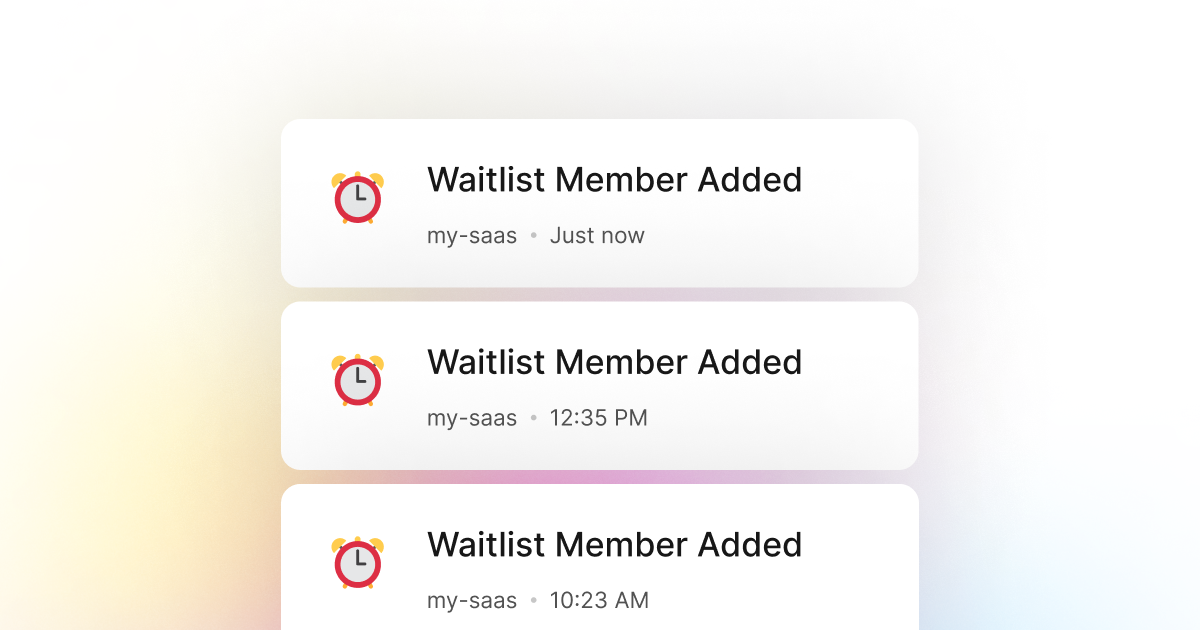Say you have just come up with a great new product idea, and you're seriously considering turning it into a real product. Or maybe you have been working on a product for a while and are almost ready to launch it.
Usually, for both of these cases, developers create a prelaunch landing page before launching the product and set up a waitlist to collect user emails and monitor the demand for the product.
The prelaunch landing page is a great way to get your product idea out to the world and to get people interested in your product or idea. It also allows you to gather user feedback and get their input into your product.
LogSnag makes it easy to set up and track a prelaunch waitlist for your product or idea using PowerShell. It is a simple event tracking tool that allows you to track, analyze and create reports from your waitlist data.
Setting up LogSnag
- Sign up for a free LogSnag account.
- Create your first project from the dashboard.
- Head to settings and copy your API token.
PowerShell code snippets
Simply use the following code snippets to send your waitlist signup events to LogSnag. Make sure to replace the YOUR_API_TOKEN with your API token and update the project and channel names.
Using PowerShell with RestMethod
PowerShell integration details
LogSnag is a use-case agnostic event tracking tool that allows you to track almost any event, such as prelaunch waitlist signups or beta signup for a new feature or product. It works seamlessly with PowerShell and is very easy to use.
In addition, with LogSnag, you can create charts and analytics from your data. For example, you may create a chart showing the number of daily or monthly waitlist signups for your product.
You may also create funnels to track the conversion rate from your waitlist signups to paying customers. You will also be able to generate user journeys for your users and see how they use your product once they get access to it.
LogSnag is also available on desktop and mobile and allows you to receive real-time notifications when your waitlist signups are added. You may also decide to receive push notifications for any other events that you may want to track from your PowerShell code.
Other use-cases for LogSnag
- Monitor your CI/CD build status for your PowerShell application
- Monitor your CPU usage in your PowerShell application
- Monitor when database goes down in your PowerShell application
- Monitor high disk usage in your PowerShell application
- Monitor when a user changes their email address in your PowerShell application
- Monitor failed logins in your PowerShell application
- Monitor failed payments for your PowerShell application
- Monitor memory usage in your PowerShell application
- Monitor MySQL downtime in your PowerShell application
- Monitor when a new feature is used in your PowerShell application
- Monitor your Postgres downtime in your PowerShell application
- Monitor Redis downtime in your PowerShell application
- Monitor suspicious activity in your PowerShell application
- Monitor when a user exceeds the usage limit for your PowerShell service
- Monitor when a user is being rate limited in your PowerShell application
- Get a notification when your PowerShell code is done executing
- Send push notifications to your phone or desktop using PowerShell
- Track canceled subscriptions in your PowerShell application
- Track your PowerShell cron jobs
- Track when a file is uploaded to your PowerShell application
- Track when a form is submitted to your PowerShell application
- Track payment events via PowerShell
- Track user sign in events in PowerShell
- Track user signup events via PowerShell

